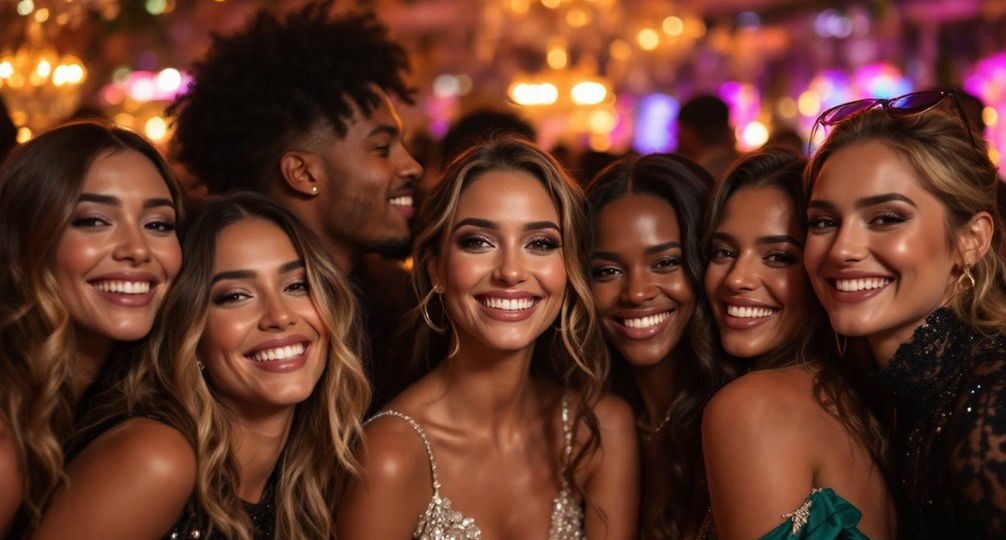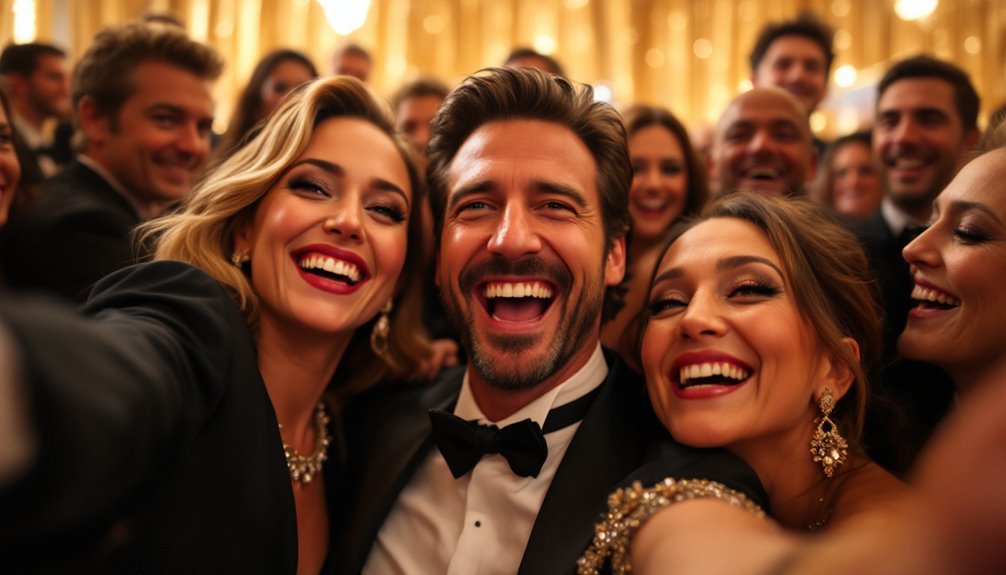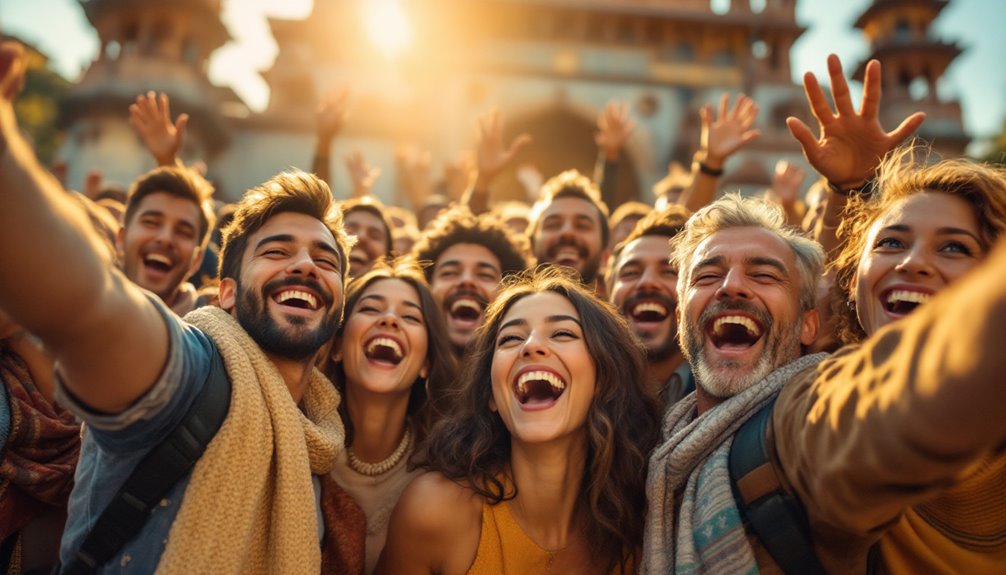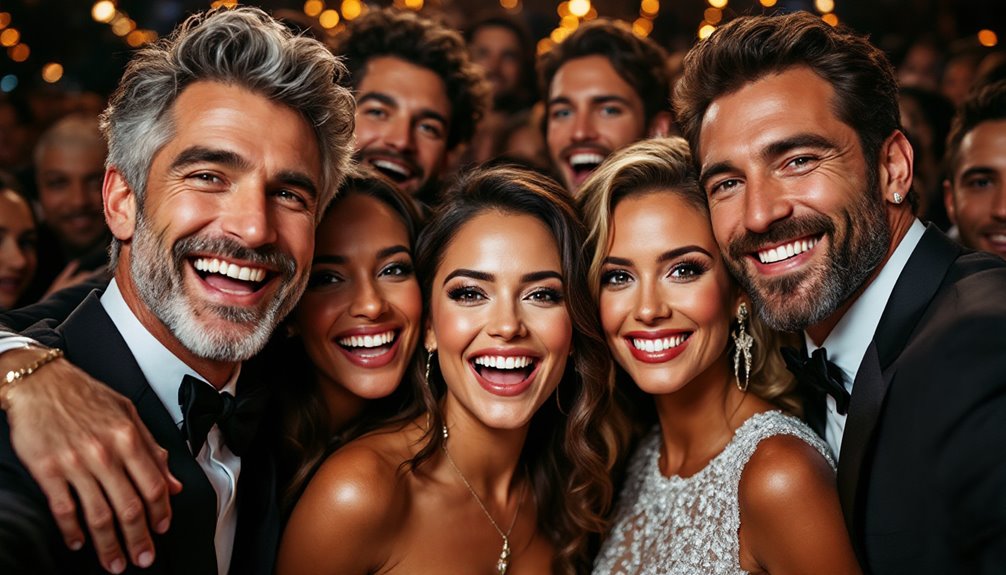
What is the most retweeted photo ever?
In a world where millions of images circulate daily, one photo stands out as the most retweeted of all time—the iconic Oscars selfie taken by Ellen DeGeneres. With its star-studded lineup, this image didn’t just capture a moment but ignited a digital phenomenon. You’ve probably seen it, but do you know what made it so uniquely shareable? Beyond just celebrity appeal, there’s a deeper narrative about the intersection of fame and social media influence waiting to be uncovered. What does this viral moment say about our digital culture and the way we engage with public figures today?
Key Takeaways
- Ellen DeGeneres’ Oscars selfie was among the most retweeted photos, achieving over 2 million retweets within 24 hours in 2014.
- Yusaku Maezawa’s 2019 tweet offering 100 million yen is the most retweeted, amassing 3.8 million retweets.
- The Oscars selfie event featured celebrities like Bradley Cooper, Brad Pitt, and Meryl Streep, boosting its viral appeal.
- Maezawa’s financial incentive tweets surpass celebrity-driven photos in retweet numbers.
- Ellen DeGeneres’ selfie demonstrated the power of celebrity influence on social media engagement.
The Iconic Oscars Selfie

On March 2, 2014, during the 86th Academy Awards, the world witnessed the creation of what would become the most retweeted photo ever, the iconic Oscars selfie. This image was a masterclass in celebrity dynamics and marketing strategies. Taken by Bradley Cooper with a Samsung Galaxy smartphone, the selfie featured an ensemble of Hollywood’s elite, including Brad Pitt, Angelina Jolie, and Meryl Streep. The selfie went viral almost instantly, garnering over 2 million retweets within 24 hours, and even caused a temporary collapse of Twitter due to the influx of users engaging with the post. Although presented as a spontaneous moment, it was later revealed as a planned marketing stunt by Samsung, which had invested a hefty $20 million in sponsoring the event.
The selfie exemplified the power of strategic celebrity collaboration in marketing, cleverly blurring the lines between authentic interactions and brand promotion. Despite Samsung’s claim of being surprised by the selfie, its creation was a calculated move, generating millions in advertising value and contributing to the highest Oscar telecast ratings in over a decade.
This event underscored the evolving landscape of how brands leverage celebrity influence to engage audiences.
Moreover, the selfie highlighted the shift towards user-generated content as a potent marketing tool, setting a precedent for how brands could harness organic-looking moments for significant cultural and commercial impact.
Record-Breaking Retweet Statistics
Amid the ever-evolving landscape of social media, record-breaking retweet statistics provide a fascinating glimpse into what captures public imagination. You can see how Yusaku Maezawa‘s strategic use of financial incentives revolutionized retweet strategies. His 100 million yen giveaway post from January 2019, promising 1 million yen each to 100 users, amassed 3.8 million retweets, making it the most retweeted photo ever. Monetary rewards have consistently proven effective in engaging audiences and driving interaction on platforms like Twitter.
Following this, his 1 billion yen giveaway on December 31, 2019, collected 3 million retweets, securing the second spot. These instances highlight how substantial rewards can drive massive visual engagement and participation.
Looking at Carter Wilkerson’s Wendy’s challenge, which garnered 3.2 million retweets, you realize how challenges and contests can spark viral success. The goal of free chicken nuggets proved compelling enough to engage millions.
Meanwhile, Barack Obama’s tweet quoting Nelson Mandela’s “Long Walk to Freedom,” with 1.4 million retweets, underscores the power of influential figures and poignant messages in driving engagement.
Visual content plays a pivotal role in these successes, enhancing retweets by 35% for photos. Verified accounts particularly benefit from this strategy, showcasing the potential of well-crafted visual engagement to break records.
Historical and Cultural Context

Yusaku Maezawa’s tweet in January 2019 serves as a pivotal moment in social media history, highlighting the intersection of technology, culture, and human behavior. By commemorating his company ZOZO’s success with a photo offering a giveaway of 1 million yen to 100 users, Maezawa effectively utilized viral marketing tactics. This tweet didn’t just break Twitter records; it showcased the platform’s unparalleled ability to amplify messages globally, propelling a single post into international conversations and social engagement. From a cultural standpoint, the tweet’s impact was profound. Maezawa, a Japanese billionaire, leveraged his celebrity status and the universal allure of wealth to capture the attention of diverse cultural audiences. This act of offering financial incentives resulted in widespread community engagement, as users from around the world participated enthusiastically, driven by the possibility of winning. The extensive media coverage further emphasized the tweet’s cultural significance, as it became a case study in the power of social media influence and viral marketing. Technologically, Maezawa’s tweet tested Twitter’s infrastructure, demonstrating how the platform can handle surges in activity. It provided invaluable data on user behavior, showcasing how compelling content can drive social engagement and community participation. During emergencies, public officials also effectively disseminated storm-related information through Twitter, highlighting the platform’s utility in rapid information dissemination.
Comparisons With Other Tweets
The impact of Maezawa’s tweet is best understood by examining how it stacks up against other highly retweeted photos. Yusaku Maezawa’s giveaways have captured immense attention, with his 100 million yen initiative receiving 3.8 million retweets. This outpaced even Ellen DeGeneres’ famed Oscars selfie, which garnered 2.9 million retweets through celebrity engagement. The allure of financial incentives often outweighs the draw of viral challenges. For instance, Maezawa’s New Year Giveaway, promising a 1 billion yen prize, attracted 3 million retweets, surpassing Carter Wilkerson’s viral chicken nugget request that earned 3.2 million retweets due to community support. Despite the appeal of giveaways, Ellen DeGeneres’ selfie remains the most retweeted image on Twitter, highlighting the lasting impact of celebrity culture. Financial rewards lead to higher retweet numbers, yet tweets that involve celebrities or issue public challenges also command significant attention. The timing of these tweets, such as Maezawa’s New Year’s Giveaway, amplifies their reach. Additionally, tweets with inspirational content, like Barack Obama’s Mandela quote, show that meaningful messages can still achieve substantial engagement, with 1.4 million retweets. When analyzing tweets, it’s important to recognize that simplicity and the user’s follower count heavily influence retweet potential. Global reach and the rapid spread of tweets within the first hour are essential metrics of virality.
Lasting Impact on Social Media

Ellen DeGeneres’ Oscar selfie exemplifies the lasting impact viral content can have on social media. When it was retweeted 871,000 times within an hour, it didn’t just break Twitter—it set a new benchmark for celebrity engagement and social media trends.
Featuring a lineup of A-list celebrities, the selfie captured the essence of Hollywood glamour while bridging the gap between stars and the public. Here’s why this moment continues to resonate:
- Immediate Virality: The selfie quickly surpassed previous records, like Barack Obama’s election night victory photo, demonstrating immense viral potential.
- Longevity: Years later, it remains among the top five most retweeted posts, with 2.7-2.9 million retweets and counting.
- Cultural Significance: It symbolized the democratization of celebrity interactions, making them accessible and engaging during high-profile events. The inclusion of stars like Meryl Streep, Jennifer Lawrence, and Brad Pitt highlighted the selfie’s unique charm and appeal.
- Influence on Trends: The success encouraged other celebrities to leverage social media for real-time engagement, highlighting the importance of timing and quality content.
This selfie wasn’t just a snapshot; it was a turning point in how celebrities harness social media.
It highlighted the power of digital platforms to amplify reach and set a precedent for future social media engagement strategies.




